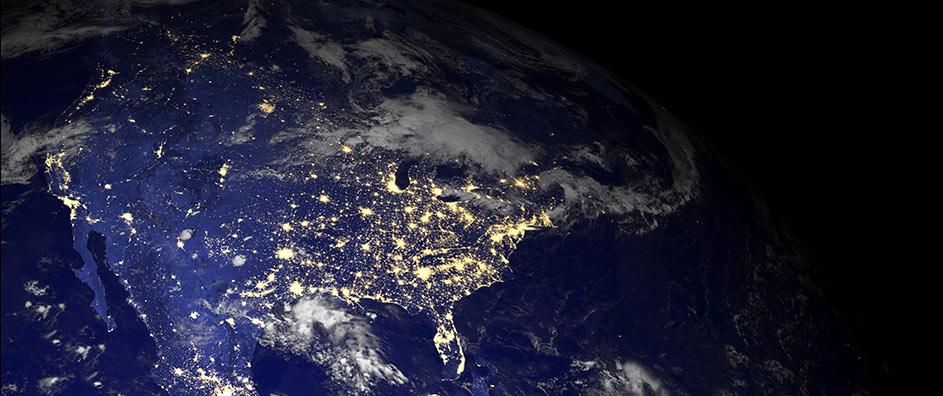The Bahá’í teachings offer a profound perspective on the relationship between the universe and humanity, articulating an integrated vision that synthesizes science and spirituality. This worldview invites contemplation on humanity’s place in the cosmos and its inherent connection to the divine. To embark upon this exploration, we first consider the splendor of the universe itself, which has long captivated human curiosity and ignited intellectual inquiry.
Throughout history, the cosmos has appeared as an unfathomable expanse, a domain that evokes a sense of awe and wonder. The shimmering stars, the vastness of the galaxies, and the intricate dance of celestial bodies evoke numerous questions concerning their origins and significance. From the observable universe to speculations about alternate realities, the Bahá’í writings implore humanity to appreciate the profundity and majesty of this vast creation. Indeed, the universe is not merely a backdrop; it serves as a manifestation of divine creation, a testament to the infinite creativity of the Creator.
The Bahá’í perspective posits that the universe is both a physical and a spiritual entity, interwoven with the fabric of divine will. It extends beyond the mere material aspects, encompassing a reality imbued with purposeful design. This duality is pivotal in the Bahá’í understanding that humanity is not an isolated phenomenon but rather intricately linked to the cosmos and its spiritual dimensions. The material universe is viewed as a manifestation of a deeper spiritual reality. Therefore, the inquiry into the cosmos simultaneously evolves into a quest for understanding the divine.
An important facet of the Bahá’í teachings is the recognition of humanity as a collective entity, which transcends race, nationality, and creed. This perception encourages a holistic view of human existence, suggesting that the unfolding spiritual and material development of humanity is intricately connected to the health and evolution of the universe itself. The interdependence of all forms of life underscores the significance of human action, emphasizing the need for ethical responsibility that extends beyond individualism.
This concept invites deeper reflection on our immediate experiences. The question arises: How do our interactions with the cosmos contribute to our understanding of ourselves? The interconnectedness of all creation suggests that humanity’s evolution is mirrored by the universe’s own progression. By examining our shared reality, we can acknowledge that the universe is a collaborative entity, and humanity has a vital role in this cosmic symphony.
The Bahá’í writings elucidate that the purpose of human life is to develop spiritual virtues and contribute to the betterment of the world. This call to action reinforces the idea that each individual has a role in the larger tapestry of existence. Humanity, as stewards of the earth and its interconnected systems, is tasked with nurturing the environmental and social dimensions of life. This responsibility goes hand in hand with the notion of progress, which is not only measured by material achievement but also by spiritual maturity, moral awakening, and unity.
In the Bahá’í view, the evolution of humanity is inextricably tied to the unfolding of the universe. The trajectory of civilization reflects a divine plan, demonstrating how historical developments align with spiritual revelations. It signifies the collective movement of humanity towards greater understanding and unity, echoing the greater cadence of cosmic development. Just as the universe expands and evolves, so too does the potential for humanity to reach unprecedented heights of moral and spiritual realization.
This philosophy of unity also extends to the recognition of life’s impermanence. The transient nature of existence fosters a deeper appreciation for the universe. It highlights the importance of embracing each moment and magnifying our collective efforts towards global collaboration, peace, and understanding. These teachings encourage humanity to lift its gaze from the quotidian to the vastness of the cosmos, instilling a sense of purpose that transcends the individual self.
Moreover, the transformative power of service is emphasized within the Bahá’í framework. Engaging in acts of kindness and compassion is seen as a vital mechanism for enhancing human wellness and fostering connection with the divine. This service aligns personal acts with cosmic significance, creating ripples of positive change that resonate through the universe, reinforcing the interconnected nature of all existence.
Further, a fundamental belief held within Bahá’í teachings is the recognition that humanity is imbued with a divine capacity for creativity and innovation. This intrinsic ability not only equips individuals to adapt to their ever-changing environment but also to contribute towards the evolution of both society and the cosmos itself. The advent of new ideas, philosophical perspectives, and technological advancements represents humanity’s response to the cosmic call of advancement—a reflection of the unfolding divine purpose.
In exploring the universe and its relationship with humanity, the Bahá’í worldview promotes a profound sense of interconnectedness. It beckons individuals to ponder the implications of their actions on a global scale, urging a shift towards unity and collective understanding. This awareness fosters an appreciation for the beauty and majesty of the cosmos as a divine creation and encourages a harmonious existence that upholds the dignity of all beings.
Ultimately, the Bahá’í teachings extend beyond mere observation of the universe; they invite humanity to participate actively in shaping its destiny. As individuals cultivate their spiritual and moral capacities, they contribute to a collective reality that strengthens the bonds of community and fosters a deeper connection to the universe. In embracing this holistic perspective, humanity can embark on a journey that not only seeks understanding but also strives to actualize a shared vision of peace, harmony, and progress for generation upon generation.
